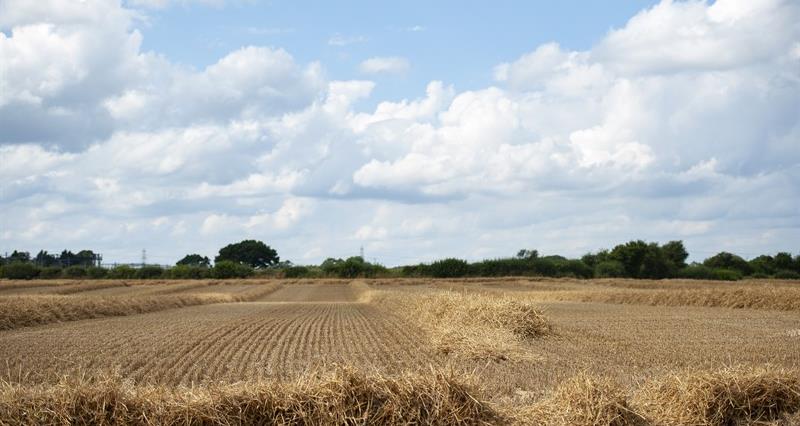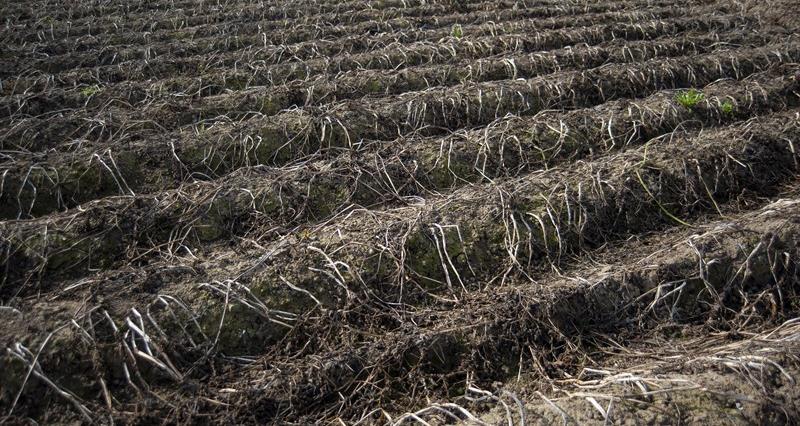More than 50 environmental and farming groups wrote to the Chancellor earlier this year to set out their case to protect the farming budget.
The government committed to £5 billion over two years in England to support sustainable farming, but no commitment has been made beyond that. The Chancellor is considering the future budget as part of the Spending Review.
The organisations which have joined forces to call on the Chancellor to protect the agriculture budget in the Spending Review are:
- NFU
- National Trust
- RSPB
- Woodland Trust
- Nature Friendly Farming Network
- Green Alliance
- Wildlife and Countryside Link
The news comes during a period when some farms have seen as little as 20ml of rain over March and April, which is putting crops under strain and limiting grass growth for livestock. The picture varies across sectors and locations and but as the dry weather continues, British food production and the natural environment are once again under pressure.
Protecting the farming budget
Looking at how to minimise the impact of more regular weather extremes on food, farming and the environment, UK Governments have continually focused on .
However, the future funding for ELMs is uncertain. That’s why the NFU and environmental groups have come together to call on the Chancellor to protect the farming budget in the upcoming Spending Review and ensure continued investment in environmental protections and a more resilient and sustainable farming sector.
This would enable investment in the health of our soils, such as through appropriate soil cultivation combined with the use of cover crops, buffering at field margins and tree planting, which would help combat dry weather by locking moisture into soils and retaining water over longer periods.
“The impacts of climate change are already being felt by farmers and growers, many of whom were under water only a few months ago and now find their soil dried out.”
NFU President Tom Bradshaw
Defra’s own data shows that since it launched in 2022, SFI has supported over 37,000 farms to deliver healthier soils, cleaner water and more habitat for wildlife. This includes 75,000 km of hedgerows that are being actively maintained, providing essential habitats for wildlife, improving carbon storage, and strengthening water management.
Risks to British food from weather extremes
NFU President Tom Bradshaw said the ongoing dry weather underlined the importance of government investment in a resilient, sustainable farming sector. “Water is absolutely vital to producing the food our country needs, and as we face increasing global uncertainty, our nation’s food security has never been more important,” he said.
“In its recent report, the Climate Change Committee could not have been clearer about the risks to British food and farming and our environment from weather extremes.”
In its , the Climate Change Committee said the UK’s preparedness for climate change is ‘inadequate’ with little progress seen since its last assessment in 2023, highlighting a number of immediate concerns that it says it expects will worsen if the government does not take action.
It states there is ‘unequivocal evidence’ that climate change is making extreme weather in the UK worse and more likely.
Tom added: “The impacts of climate change are already being felt by farmers and growers, many of whom were under water only a few months ago and now find their soil dried out.
“That’s why it’s so important we build resilience into the sector. A key tool to doing that is the farming budget. This budget delivers so many government priorities – both in terms of food security and the environment, as well as offering value for money – which is why we are calling on the Chancellor to protect it.”
Successful farming transition and environmental targets in jeopardy
Beccy Speight, RSPB Chief Executive agreed that the threat of drought is a stark warning of how exposed our nature and farming are to the accelerating impacts of climate change.
“The government’s own food security report has identified climate change and the loss of nature as the biggest medium- to long-term risks to our ability to produce food. Yet farmers are being asked to respond to these challenges without the certainty of long-term investment.
“To build resilience and protect both food production and nature, the government must, as a minimum, protect the farming budget at the June Spending Review. Over a 100,000 people have joined the RSPB in calling on the UK Government to protect and grow investment in nature-friendly, climate-resilient farming.”
Hilary McGrady, Director-General of the National Trust, said: “Farmers and our natural environment are increasingly exposed to our see-sawing climate – from floods just a few months ago, to near drought this spring. Without proper investment, these extreme effects are only going to get worse. So it’s essential that the government commits to a healthy farming budget in the Spending Review, one that invests in nature and supports farmers to increase the resilience of their land, whether that’s by restoring peat bogs, planting trees or growing cover crops and wildlife-rich field margins.
“As we have said repeatedly, while a short-term budget cut may seem attractive given the country's finances, it'll only deepen the spending blackhole, putting a successful farming transition and our national environmental targets in jeopardy.”
Nature is the foundation of food production
Lydia Collas, head of natural environment at Green Alliance, said protecting the environment and feeding the nation are “inseparable”.
She added: “We know that climate change is driving up people’s bills in the middle of a cost-of-living crisis. Meanwhile farmers who lost harvests due to wet weather last year are now struggling with sustained lack of rain.”
Ms Collas urged the government to protect the budget for ELMs in the Spending Review.
Martin Lines, CEO of the Nature Friendly Farming Network said: “Nature degradation could slash UK GDP by 12%, and in farming, that decline has already begun. Nature is the foundation of food production – as this drought makes painfully clear. If we want farms to stay profitable and food to stay on shelves, we must tackle the climate and nature crises head-on.
“Investing in nature-friendly farming is essential economic policy. It strengthens soils, safeguards water, boosts resilience to floods and droughts, and keeps farming viable for the future.
“The solution is clear. What we need now is the funding to match the urgency.”
Dr James Cooper, Head of External Affairs at the Woodland Trust, added: “Agroforestry will support landscape resilience and food security in the face of a changing climate. Trees can act as an insurance policy against drought by enhancing the crop microclimate, improving crop water efficiency, and reducing the impact of drought on yields.
“Government investment now in financial support and advice to farmers will help to build resilience into their business and protect future food production.”



